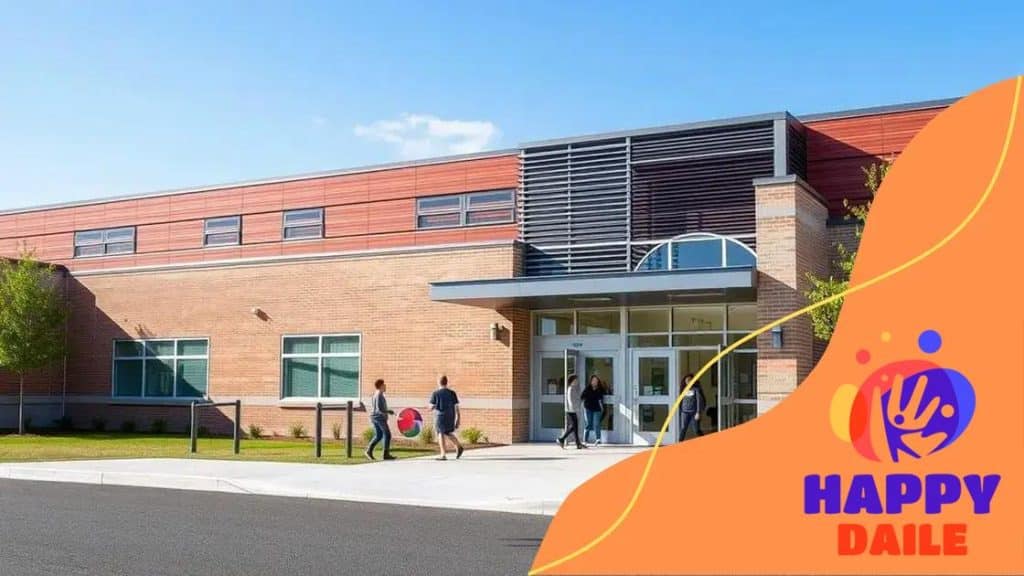Oklahoma Religious Charter School: A fresh approach to education

Anúncios
Oklahoma religious charter school are reshaping the educational landscape by introducing a compelling model that integrates rigorous academics with spiritual values.
Ever wondered if school could nurture both mind and soul?
Anúncios
The Oklahoma Religious Charter School model blends academics with spiritual growth, sparking debates about freedom, funding, and fairness. Dive into how these schools are redefining education!
Understanding Oklahoma’s charter school system
The Oklahoma Religious Charter School thrives within a vibrant charter system, offering families alternatives to traditional public education. These publicly funded schools enjoy autonomy, crafting innovative curricula tailored to unique student needs.
This flexibility empowers charters to experiment with teaching methods and policies, distinguishing them from district schools. For faith-based charters, it opens doors to integrate spiritual elements.
Grasping this framework highlights how the Oklahoma Religious Charter School balances academic excellence with religious identity, shaping the future of school choice.
Anúncios
Benefits of Oklahoma religious charter school
Charter schools, including the Oklahoma Religious Charter School, give parents freedom to choose environments matching their child’s goals. Their independence fosters creative teaching, from STEM to faith-focused programs.
Smaller classes and specialized curricula boost engagement, aiding students who thrive outside traditional settings. Faith charters add moral depth to this model.
The Oklahoma Religious Charter School empowers families to align education with values, driving demand for diverse, high-quality learning experiences despite funding challenges.
The role of religion in educational settings
The Oklahoma Religious Charter School rekindles debate by weaving faith into public education, rooted in the state’s rich spiritual heritage. These schools aim to foster ethical, well-rounded students.
Advocates view them as vital for aligning schooling with family beliefs, while critics question public funds for religious instruction. This tension defines their impact.
The Oklahoma Religious Charter School challenges conventions, prompting reflection on how spiritual values can enhance learning in publicly supported institutions.
Religious integration in curriculum
The Oklahoma Religious Charter School embeds faith in its curriculum, balancing core subjects with spiritual teachings. Religious studies enrich math and science, promoting ethical reasoning.
Daily practices like prayer or scripture readings shape a values-driven culture, nurturing students’ moral and intellectual growth in a cohesive environment.
This integration in the Oklahoma Religious Charter School fosters a unified worldview, appealing to faith-focused families while raising legal and inclusivity concerns.
Benefits of a religious education
The Oklahoma Religious Charter School cultivates character, responsibility, and community through faith-based learning. Students explore spirituality in a supportive, safe space.
Shared values forge strong peer bonds, enhancing motivation and emotional health. This belonging often boosts academic success and personal development.
By prioritizing moral growth, the Oklahoma Religious Charter School equips students for meaningful lives, merging faith with skills for a complex world.
Key features of Oklahoma religious charter schools
The Oklahoma Religious Charter School blends academic rigor with spiritual focus, meeting public standards while offering faith-infused instruction. This dual mission attracts value-driven families.
Close parent-teacher collaboration builds a tight-knit community, fostering a supportive atmosphere. Daily spiritual practices reinforce the school’s unique culture.
The Oklahoma Religious Charter School excels in delivering holistic education, ensuring students thrive intellectually and morally in a faith-centered setting.
Distinct characteristics
Unlike conventional public schools, these institutions have the freedom to create educational programs that incorporate religious teachings without compromising academic quality.
Another distinguishing element is the strong sense of community these schools promote. Parents and teachers often work in close partnership, cultivating a collaborative environment where students feel supported both academically and emotionally.
In addition to academic instruction, religious charter schools integrate prayer, religious studies, and spiritual reflection into the daily routine. These elements provide students with a consistent opportunity to engage with their faith.
For many families, this spiritual emphasis is a key reason for choosing a religious charter school, as it helps children form values and beliefs in alignment with their home environment.
Advantages of choosing a religious charter school
- Curriculum integration of religious studies and core subjects.
- Opportunities for character education and service-learning initiatives.
- Supportive community focused on shared values and beliefs.
- Enhanced parental involvement in school activities and decision-making.
Another important aspect is the emphasis on community. Parents and teachers often collaborate closely, fostering a supportive environment for students. This connection can lead to stronger relationships among families and enhanced school spirit.
Students at religious charter schools are also encouraged to practice their faith in a safe space. Regular prayer and spiritual activities become part of the school culture, helping students develop their beliefs and values in a nurturing environment.
However, families should consider their personal values and educational goals when choosing a religious charter school. Assessing the school’s alignment with one’s beliefs is crucial for ensuring a good fit for their children.
Benefits of attending a religious charter school
Families choose the Oklahoma Religious Charter School for its seamless blend of academics and faith. Curricula integrate core subjects with spiritual learning, fostering critical thinking.
Focus on empathy, service, and character builds responsible leaders. Strong communities enhance parental involvement, bridging home and school effectively.
The Oklahoma Religious Charter School nurtures students’ growth, offering a supportive space where values and skills align for lifelong success.
Personal growth
- Development of strong moral values.
- Encouragement of community service and volunteer work.
- Promotion of leadership skills through various activities.
- Supportive environment that nurtures self-esteem and confidence.
Additionally, these schools often foster a sense of belonging among students. Being part of a community that shares similar beliefs can enhance friendships and create a supportive atmosphere. This environment often leads to improved motivation and attendance.
Furthermore, many religious charter schools emphasize parental involvement. Parents can engage in school activities and decision-making, fostering a collaborative approach to education.
This connection between home and school can improve students’ performance and enhance their educational experience.
Another important aspect is the focus on character education. Many religious charter schools incorporate teachings that encourage respect, empathy, and kindness. This helps students develop important life skills that will benefit them beyond the classroom.
Overall, the unique combination of academic rigor, personal development, and community support makes religious charter schools a compelling option for many families seeking a comprehensive educational experience for their children.

Challenges faced by religious charter schools
The Oklahoma Religious Charter School faces funding hurdles, relying on state grants and enrollment. Fluctuations strain resources, impacting program quality and stability.
Balancing faith-based missions with state regulations is complex, while public skepticism about inclusivity demands proof of academic excellence.
Despite challenges, the Oklahoma Religious Charter School perseveres, addressing funding, compliance, and perception to deliver impactful, faith-driven education.
Regulatory issues
Additionally, religious charter schools must navigate the complex landscape of regulations. Balancing religious instruction with state educational requirements can be tricky.
Another challenge is public perception and misconceptions. Some people may view religious charter schools with skepticism, believing they do not provide a comprehensive education.
The Oklahoma Religious Charter School navigates a delicate balance between spiritual goals and state rules. Compliance with academic standards while preserving faith identity is challenging.
Scrutiny over public funds for religious teaching fuels legal debates, requiring careful curriculum design to maintain inclusivity and legality.
Future of Oklahoma religious charter schools
Additionally, as policies around education shift, religious charter schools may benefit from legislative changes. New laws could facilitate support for charter schools, including funding and operational guidelines that better accommodate their unique missions.
Innovations in teaching methods and technologies will be integrated into religious education, ensuring that students receive a relevant and effective learning experience.
Collaboration with community organizations is also likely to grow. By partnering with local churches, charities, and educational organizations, religious charter schools can enhance their offerings and build a strong network of support.
As they face challenges, the resilience and adaptability of religious charter schools will be crucial. By focusing on the needs of students and families, and by navigating regulatory frameworks effectively, these schools can continue to thrive in Oklahoma’s educational landscape.
Religious charter schools in Oklahoma are an essential part of the educational landscape. They offer families unique opportunities that blend academics with faith-based values.
With strong community support and a commitment to educational excellence, the future looks bright for these institutions and the students they serve.
FAQ – Frequently Asked Questions about Religious Charter Schools in Oklahoma
What are religious charter schools?
Religious charter schools are publicly funded schools that incorporate religious values and teachings into their curriculum while maintaining autonomy from traditional public school regulations.
How do religious charter schools differ from traditional public schools?
Religious charter schools have the freedom to create their own curriculum that aligns with their faith-based philosophies, whereas traditional public schools must follow state-mandated guidelines.
What are the benefits of attending a religious charter school?
Benefits include a unique education that combines academics with character development, a supportive community, and parental involvement opportunities.
What challenges do religious charter schools face?
Challenges include funding limitations, regulatory compliance, public perception, and competition with traditional public schools.





